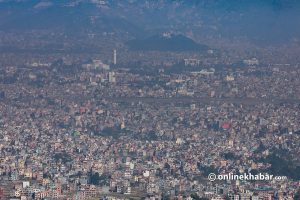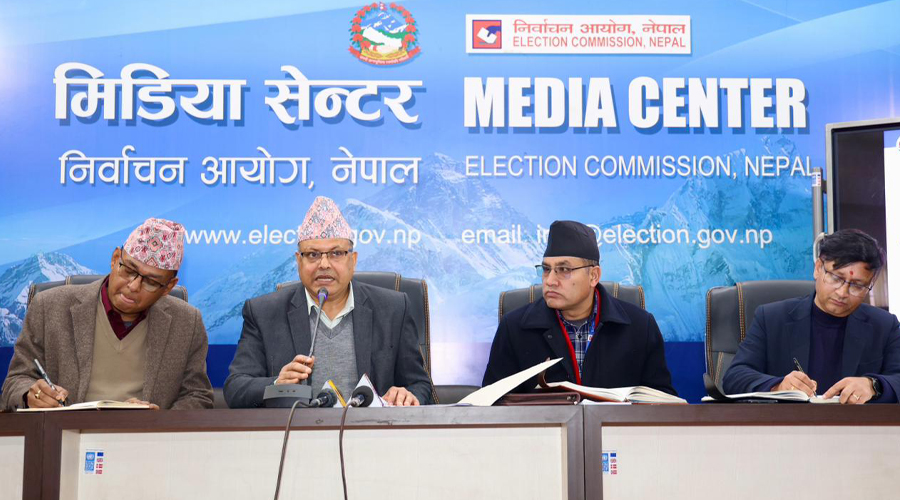Local units serve as the foundation for the state, democracy, development, and prosperity. But, how many local governments have made public their accomplishments over the last five years between two local elections? They should have proclaimed their past achievements, performances and expenditures to the public before leaving the offices.
However, most local governments were unable to produce any previous records because they failed to provide good services to the people, which shows a need for improvement in their democratic culture and political integrity.
However, the victory of independent candidates such as Balen Shah in Kathmandu during the local elections this time has shown a new political culture is being developed, which could be a catalyst to big changes.
Shifting belief in political parties
Various analyses are being conducted in relation to the results of the local elections. The election results have shifted the balance of power between the parties. The UML, which had previously become the first party at the local level, has been forced to shrink into the second party today while the Congress, which had previously been the second party, has been given the opportunity to become the first party. Although the Maoist Centre has made some progress, it still ranks third.

The best feature of the local elections this time was that the people did not trust those who were unable to deliver development projects and delayed public services previously; also people allegedly involved in corruption and false promises were also defeated.
No matter where the parties came from, in most places, the people were found to have given a lot of thought to voting during the local elections. However, in the place where the alliance was formed, it was found that the leaders and cadres cast their votes for support of the alliance. Many past people’s representatives did not win the elections due to their false promises and lack of contribution to the welfare of the people.
This time, the people did not believe in those leaders who do not have honesty and sincerity for local level developments. Many of the leaders who were chosen as candidates due to the vested personal interests of the senior leaders had a hard time gaining the faith of the people. While in some areas people still vote in the name of the coalition but new and young faces emerged during the local elections this time.
Changed scenario
The major party, UML, suffered the biggest loss in the local elections. The UML has suffered some losses due to the split in the party and the belief that the UML should be defeated in any way by the alliance of other parties. However, the biggest defeat seems to have been borne by the UML for its own reasons.
The party had become the first party after winning 297 municipalities in the 2017 local elections. However, it has never been able to study and analyse the status of the people’s representatives who have won from the UML since then. This was the big mistake of the UML during the five-year period. However, the Congress had to face the same problems, but due to the alliance and getting votes from other parties, the Congress has been able to add many new young faces at local levels even though it has lost some of its old candidates.
Another message conveyed by the recent local elections is that a person who lives locally and is engaged in public works and social service can win the elections regardless of their party affiliation. However, the elections seem to have conveyed the message that a person who comes from a leader’s vested interest but has not been able to serve the community, lacks morality and honesty no matter how much they spend finds it very difficult to win the elections.
On the other hand, the local elections this time have also given another important message about the attraction of the people towards independent and young candidates. Independent candidate Balen Shah has secured a position as the mayor of Kathmandu metropolitan city. Similarly, a few others—Manoj Sah of Janakpur, Gopal Hamal of Dhangadhi, and Harka Rai of Dharan— won the local elections as independent candidates.

These results show that the people are highly frustrated with the current political parties and leaders.
The votes they secured are against all forms of hegemony, including partisanship, political bargaining, old party leadership, nepotism, favouritism, the jamindari system in political parties, and the extreme lack of internal democracy. At the same time, respect for diversity, proper use of resources and transparency are highly demanded. It is also in favour of the republic and the federal structure, its institutionalisation and the appropriate reform of the constitution and laws.
Independent leaders’ entry into politics
Balen Shah’s candidacy for the Kathmandu metropolitan city and the wave he has raised, the new thinking and enthusiasm he has brought and the blow he has inflicted on the syndicate in politics will surely add new dimensions.
Local governments’ success requires the preservation of local identity, the identification and resolution of local needs and problems, and proper coordination with states, federations, and other nations. Similarly, the true meaning of provincial self-government is the preservation of provincial uniqueness, the identification and resolution of needs and problems, and the practical practice of coordination with all.
The independent candidates’ success is all dependent on all of these factors. Let us hope that they will be an example and that his enthusiasm will grow because addressing these issues requires respecting diversity and constructing a prosperous democratic society.

























